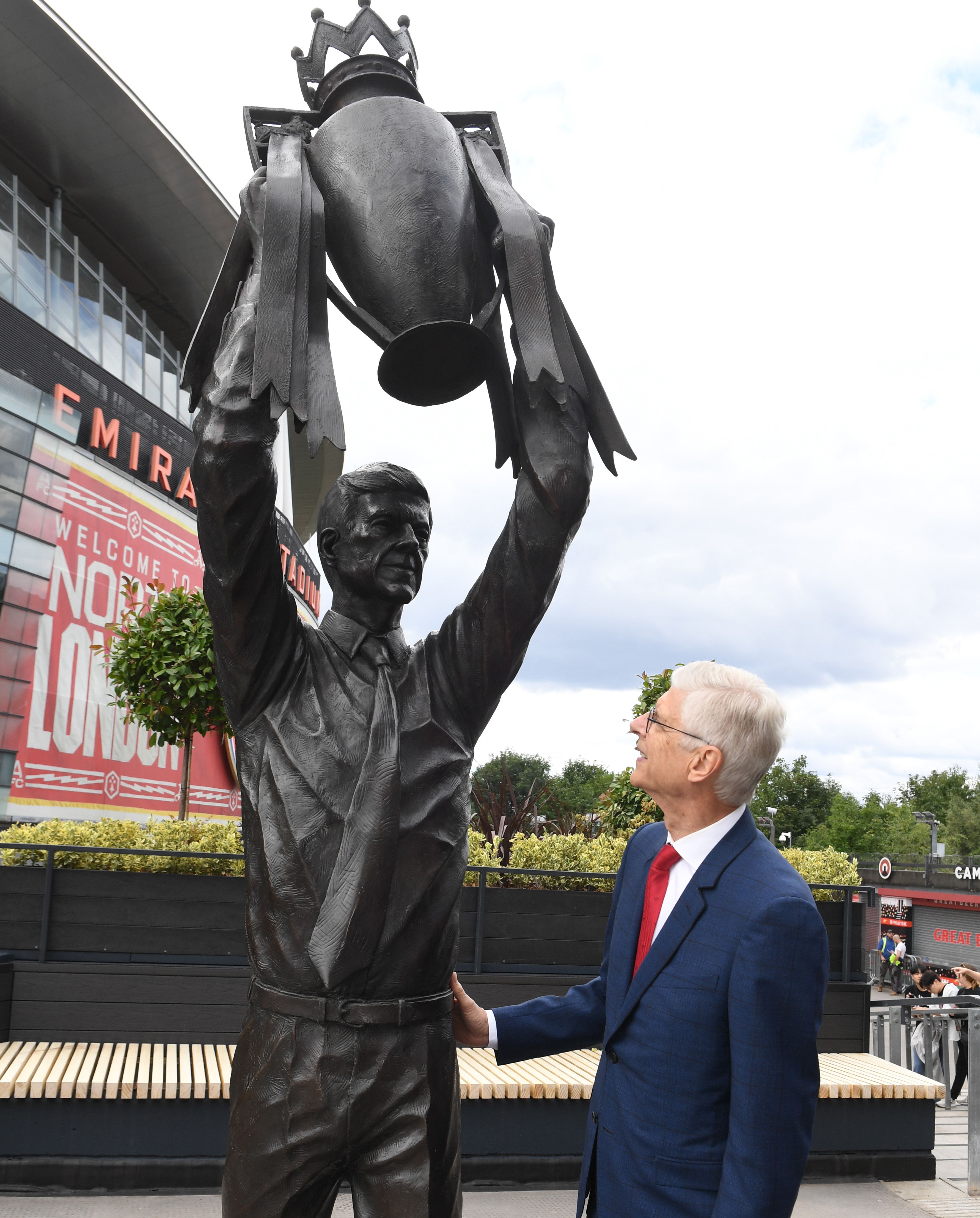Tales from the Invincibles
ARSèNE WENGER
Arsène Wenger became the first Arsenal manager ever to win three league titles when he guided the side to an unforgettable, unbeaten championship success in 2003/04.
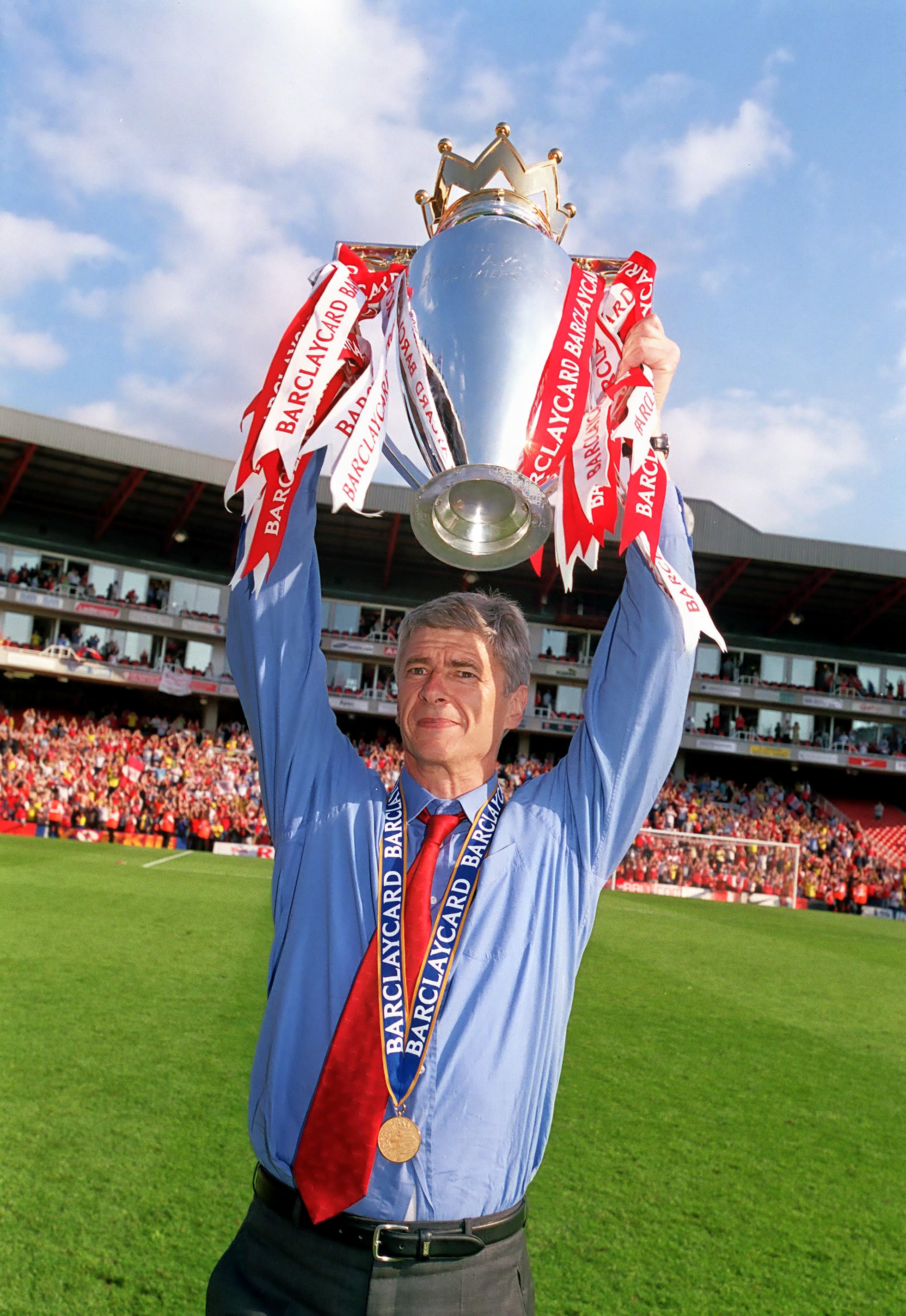
He had already led us to the league and FA Cup double in 1997/98 – his first full season at the club – and in the process became the first-ever overseas manager to win the title.
He won another double in 2001/02, including a league season in which we remained unbeaten away from home. That planted the seed in the boss’s mind that his ultimate dream was achievable – winning the title without suffering a single loss.
When he revealed that ambition ahead of the 2002/03 season, he was derided in the media when we were beaten by Everton on matchday 10. But his prediction was merely a season early, and he was lauded far and wide at the end of the 2003/04 campaign, cementing himself into English football legend.
Wenger would go on to manage us for 22 years in all, achieving Champions League qualification 19 times, and winning a record seven FA Cups. He left as the most successful and longest-serving manager in our history, after taking charge of 1,235 games, at the end of 2017/18. Now FIFA’s Chief of Global Football Development, we caught up with him recently to reminisce on his crowning glory 20 years ago.
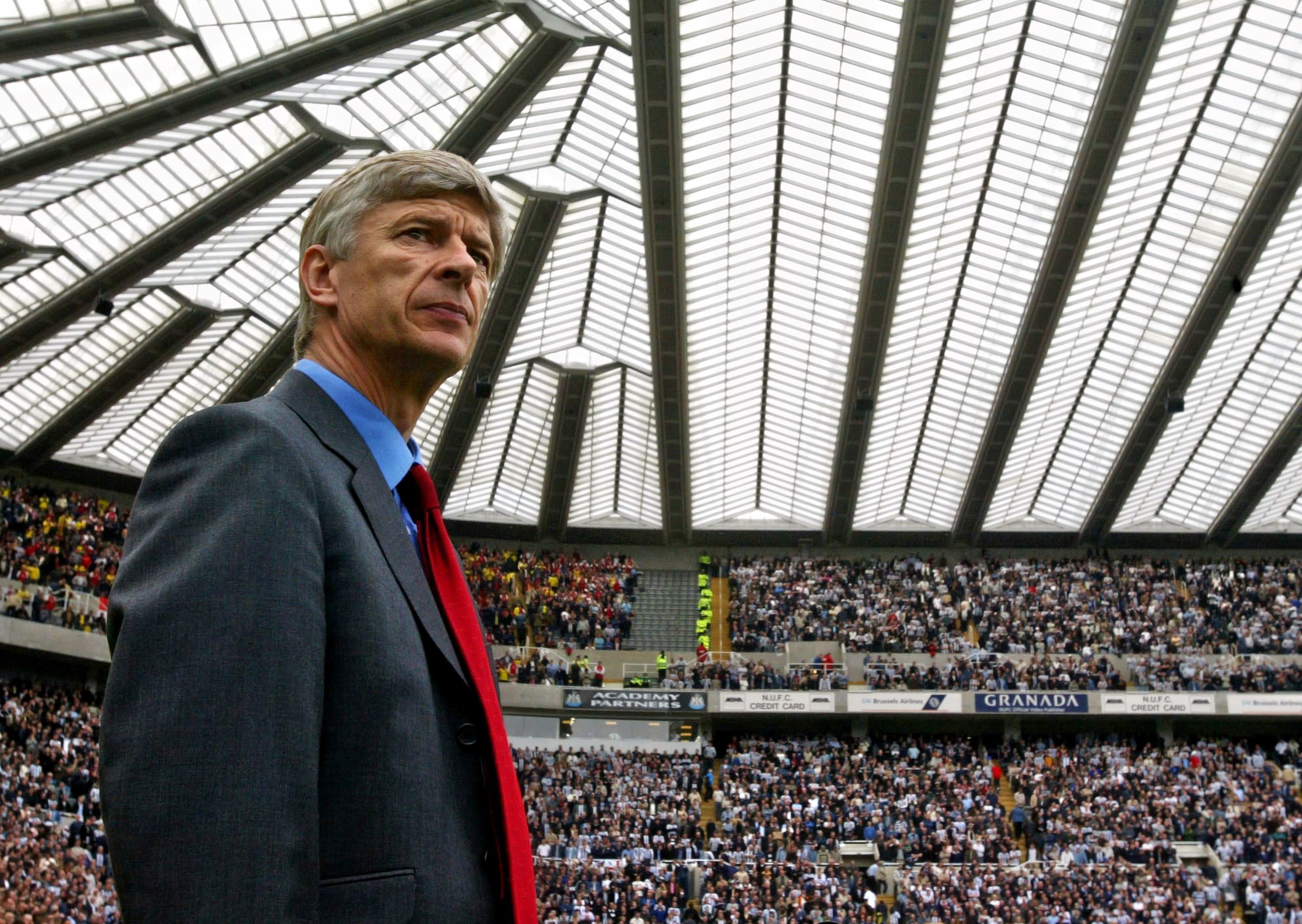
When you looked around the dressing room ahead of the 2003/04 season, what did you sense from your players?
First of all disappointment, because we could have won the league in 2003. In 2002 we had a good run away from home, we didn’t lose an away game that season, and that’s why I had asked them already to win the league unbeaten. I thought it could be done.
So at the start of 2003/04, I asked them why they thought we didn’t win the league last season in their opinion. They said I had put them under too much pressure by asking them not to lose a game. But I said again: “Look, I think you can do it, you just need to really want to do it.” That shows that sometimes you need to put the seed of an idea in the brain a year early, then be patient until it comes out. Then it's important to stick with it, and not back down.
On that day when they told me that, I could have said: “Yes, I agree, I’m sorry, let’s just try to win the league.” But I didn’t, I repeated it, because I knew they could do it. The difference between winning the league and winning it unbeaten is only mental – it’s not down to the potential of the side. I wanted to stick to what I believed, that we could do it, because for me the most difficult thing at the top level is consistency.
When you are a really top athlete, you want to do as well as you can. Also I thought why should you be able to beat Middlesbrough one week, then lose to West Ham the next week? Why should you accept losing a game?
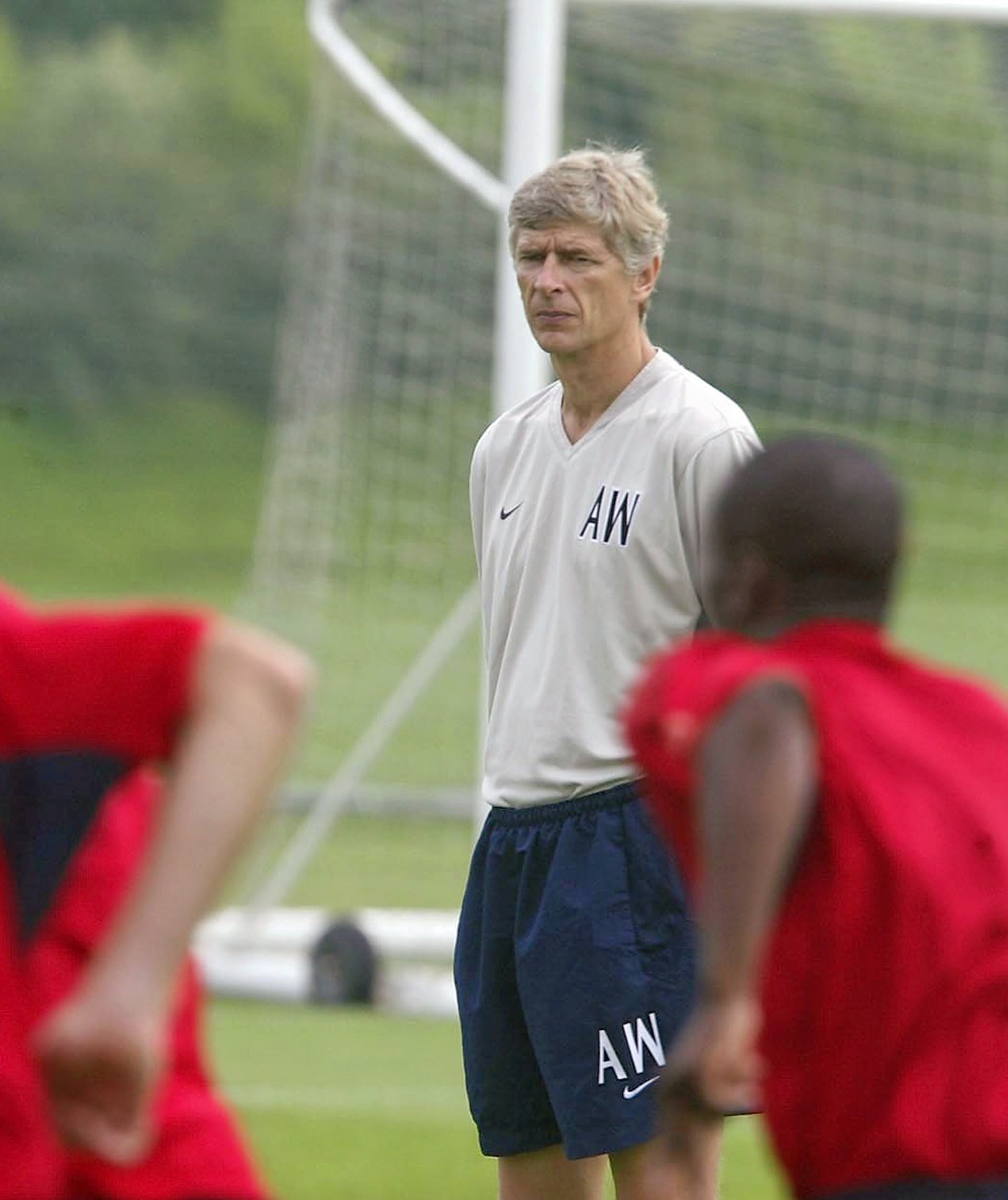
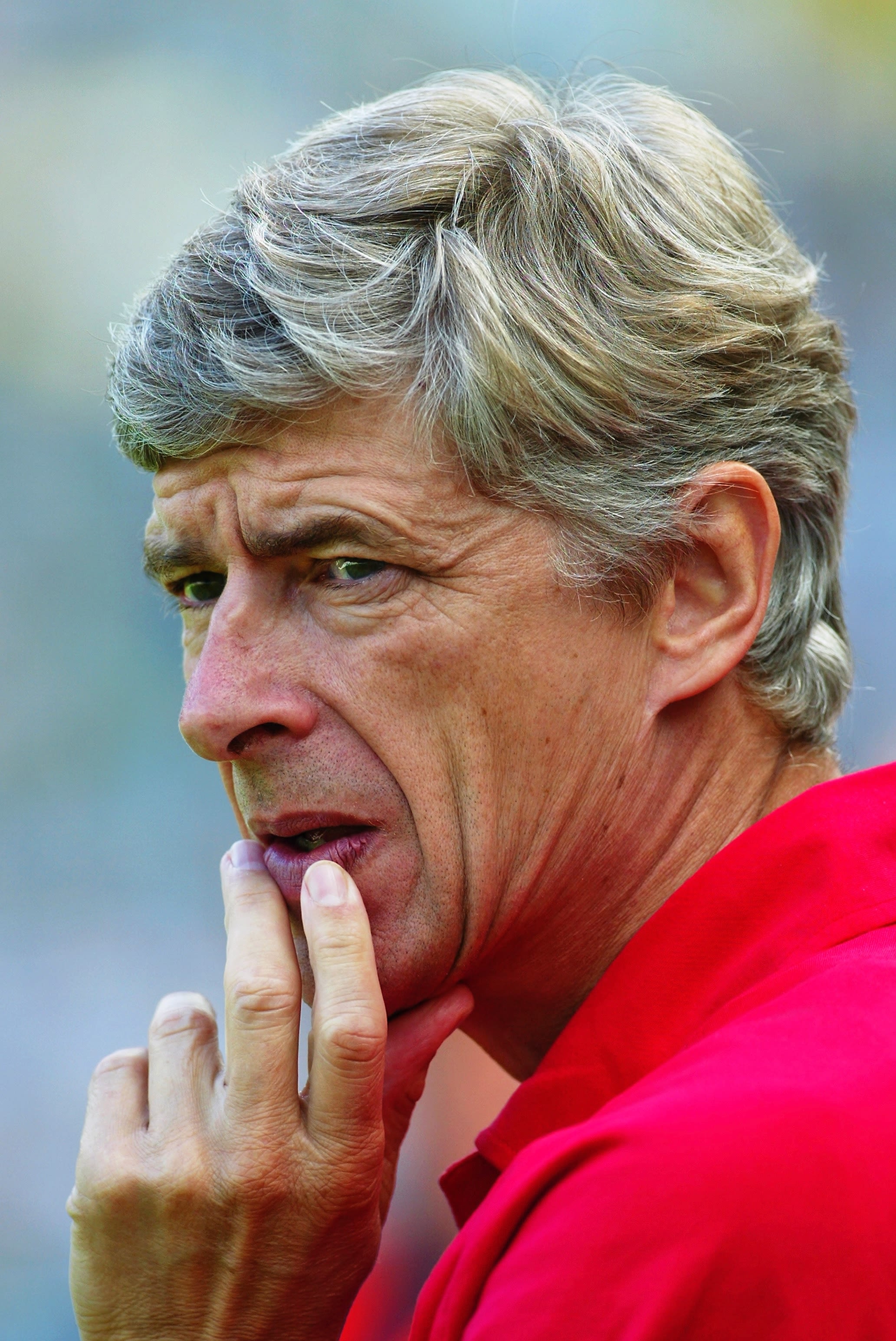
“I thought why should you be able to beat Middlesbrough one week, then lose to West Ham the next week? Why should you accept losing a game?"
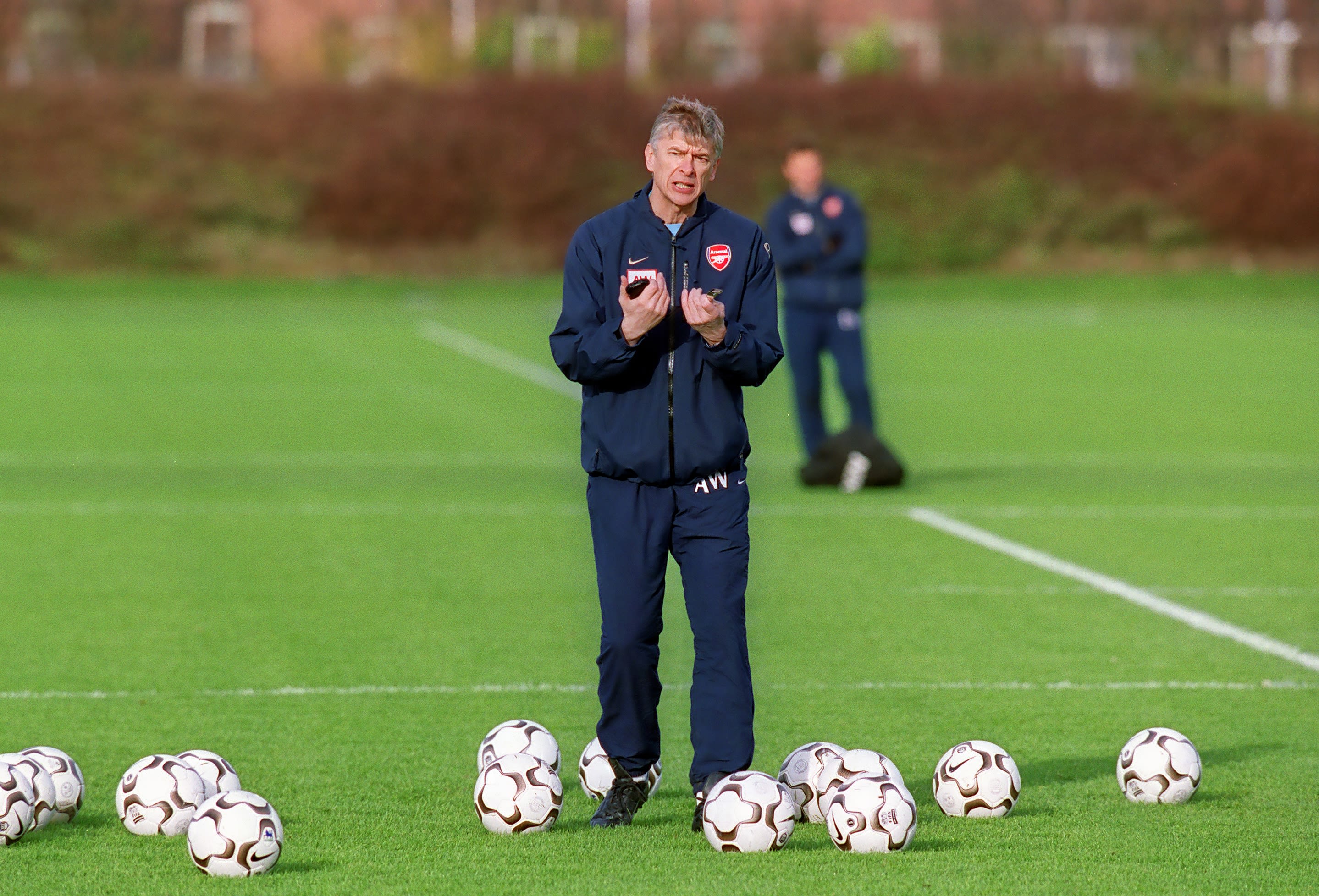
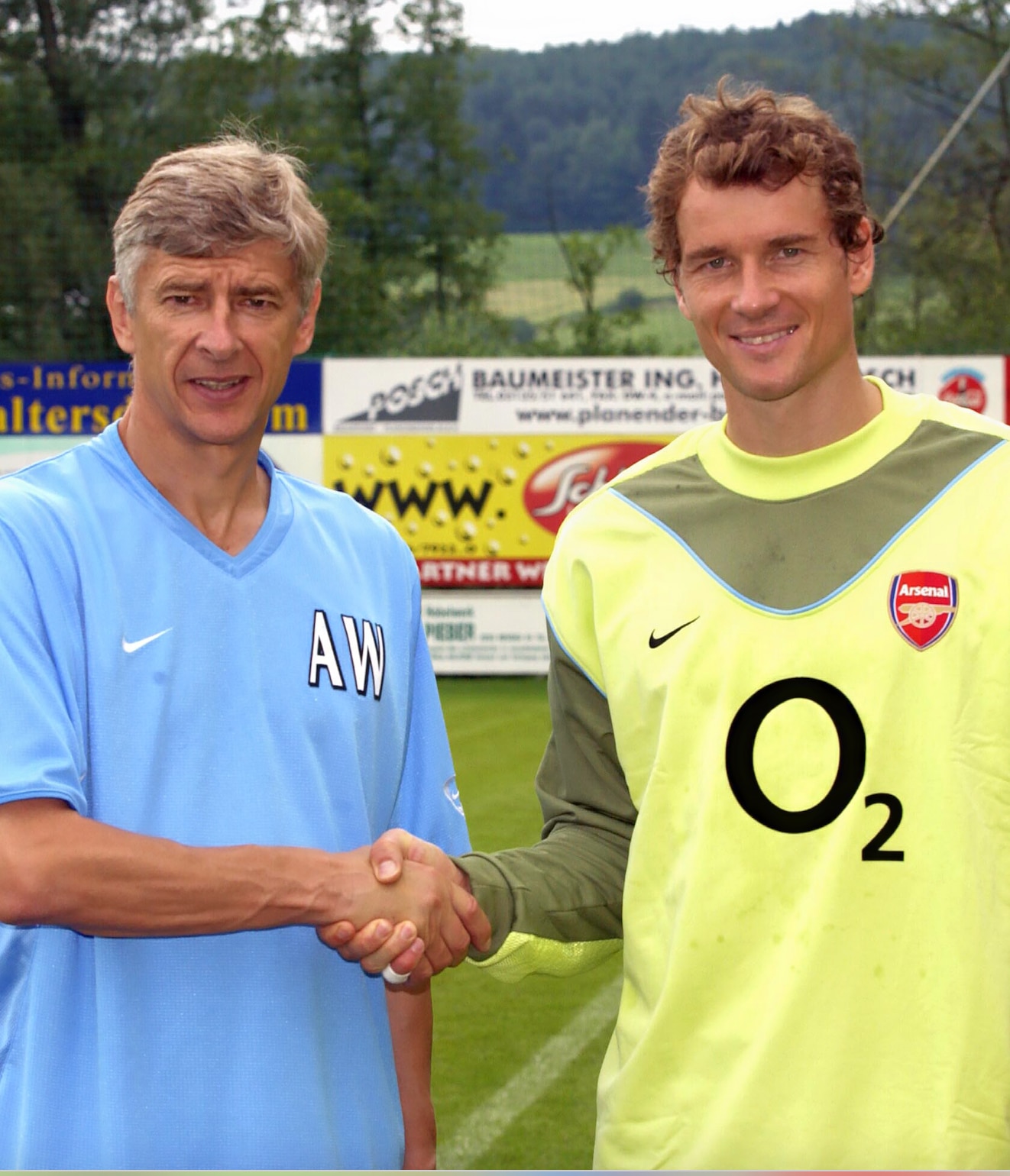
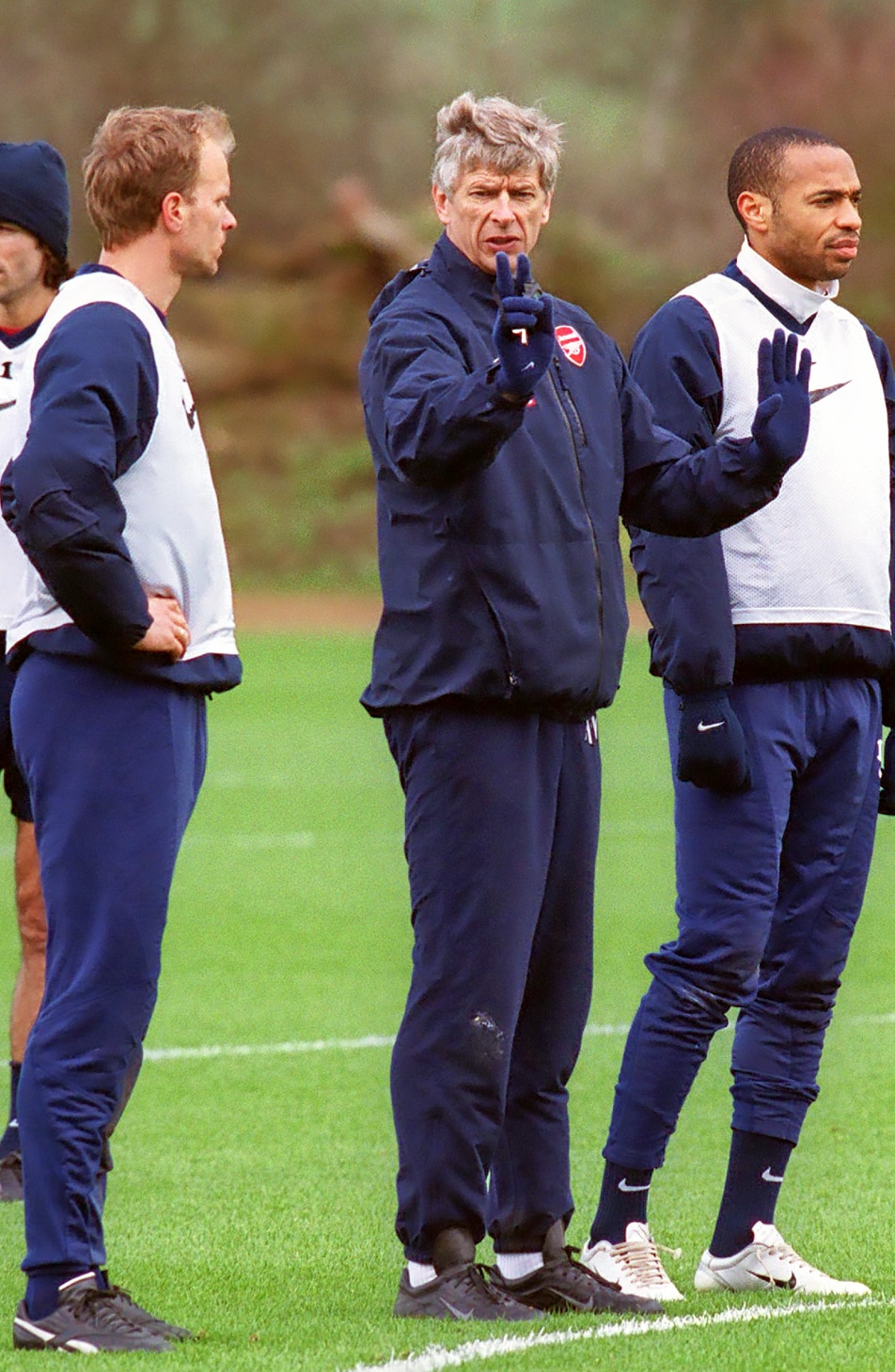
That summer your only major signing was Jens Lehmann in goal, though you also signed some young players including Gael Clichy. Were you confident in the strength of your squad, or had you tried to bring in others too?
No, I didn’t really try for anyone else. I wanted a goalkeeper because David Seaman had gone, and as always every year I took a young player of top, top potential to join the squad too. I wanted to bring them in to educate them, and to see if they have a chance to play.
Offensively, if you look overall at the options we had at that time – it was difficult to add much more! But what was one of the brands of that team was that it was a very cheap team. Hardly any players of that team had arrived as big signings, and that was the big characteristic of that squad.
People spoke a lot about the exceptional defence, but that defence – Ashley Cole, Lauren, Kolo and Sol Campbell – was very cheap. Even with Jens included, all together they cost less than £10 million.
Do you think that’s one of the reasons why the team spirit was so good, and that the individual ego was never put first?
I would agree with that, but I would also say that this team – they had an ego, a big ego, but they used it to improve themselves and to put their quality at the disposal of the team. They all wanted to contribute to the team.
Certainly the biggest brand of this team was that ingredient. They were all top-quality players, but also players who understood how necessary it was to put their qualities to use for the good and the service of the team. I would say that was definitely true for that side. The humility as well was incredible.
For me, the major qualities needed to achieve something like this are to put your individual talents to the service of the team, while also remaining humble after every game. That means whenever you win a big game, you come in to work again the next morning thinking, “OK, that has gone, we have to start it all again. What we did last night was good, but let’s continue.” You have to be ready not to demand any privileges, but turn up for training every day to try to improve again, and try to win the next game.
We faced Manchester United on matchday six. did you think it was early to go to Old Trafford? Would you have preferred those huge matches to be later in the season?
Yes, I thought it was a bit early to be playing that game, and ideally you would have it later. Looking back now that was certainly the game that had us most on the edge of invincibility! One kick could have completely decided a different fate for us. You could say we were lucky in that game, when we saw the penalty missed. You could also say we were unlucky to concede the penalty, but then maybe we were lucky to get away with it.
The stakes were always so high in those fixtures. Even without the red card and penalty, did you think there would have been a flashpoint anyway?
Yes, you expected it in those games! You always knew that something would happen when we played Manchester United, they were emotional games. It could have been before the game, during the game, or after the game, but always something like that would happen. So you had to prepare for that.
You want to focus just on the football. You knew that there would be distractions at some stage, the tensions would be high so you always tried at the start to get the players to focus on absolutely keeping control of their nerves. You remind them to be focused just on the game, and in the end it was not always the case! It is harder to do it when you are on the pitch.
The club and players were hit with fines and suspensions after that, how did you respond to that as manager? Did you punish the players?
No, I just tried to calm them down and speak to them. I remember Martin Keown coming to me the next day and saying: “Boss, the reaction is terrible for me.” I said: “Martin, don’t worry, you have done nothing wrong.” So I wasn’t angry with my players, not at all, because it was what I liked to see – the reaction of winners.
I wasn't angry with them, I was just trying to reassure them. First of all I was just happy that we did not lose the game, so my judgement of the players was a bit more comprehending than it should have been maybe, because we hadn’t lost. That was one of those situations when what I said publicly and in the media about it was different to what I was saying in the dressing room to my players – but that’s not the only time that happened!
Overall what I liked in that reaction that day, was the solidarity of the team. You could really feel it. Maybe I could smell, at that point, that this incident would be very important for the team for the rest of the season. They came all together against Ruud van Nistelrooy. Martin, Ray Parlour, Lauren and all the rest, so it was a real Arsenal spirit. We just spoke about team spirit, and maybe as well that reaction at Old Trafford contributed to the team spirit for the rest of the season.
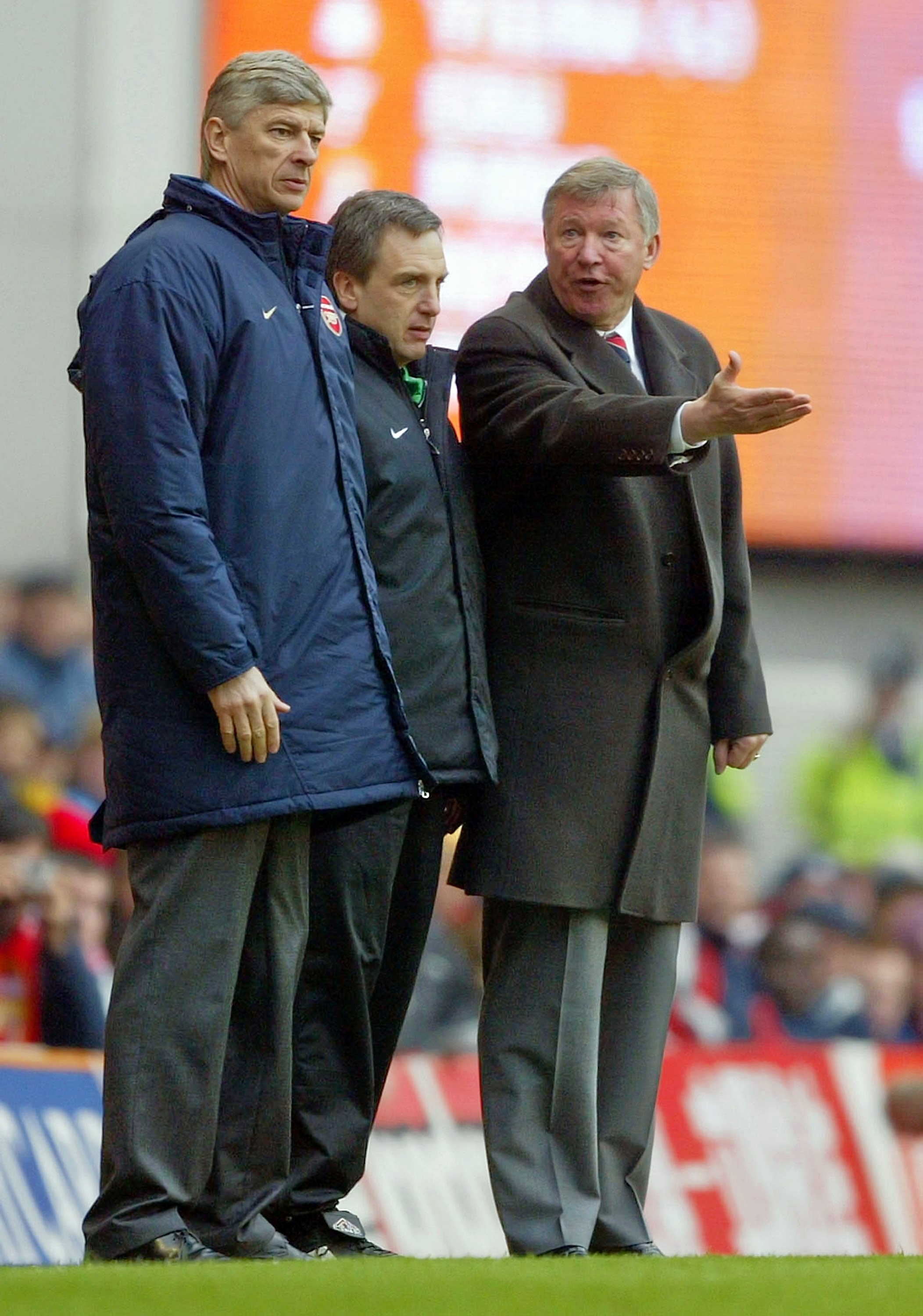
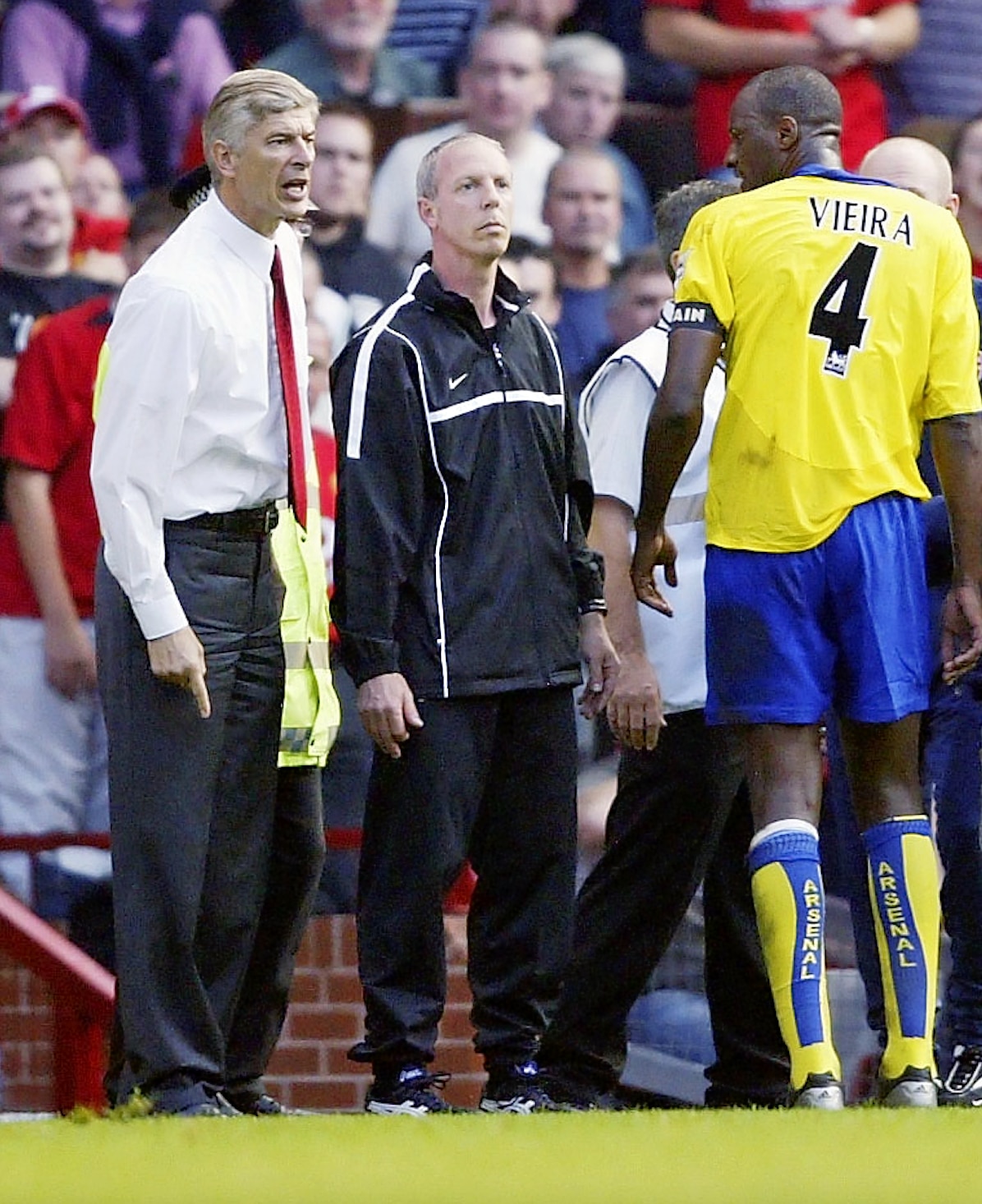
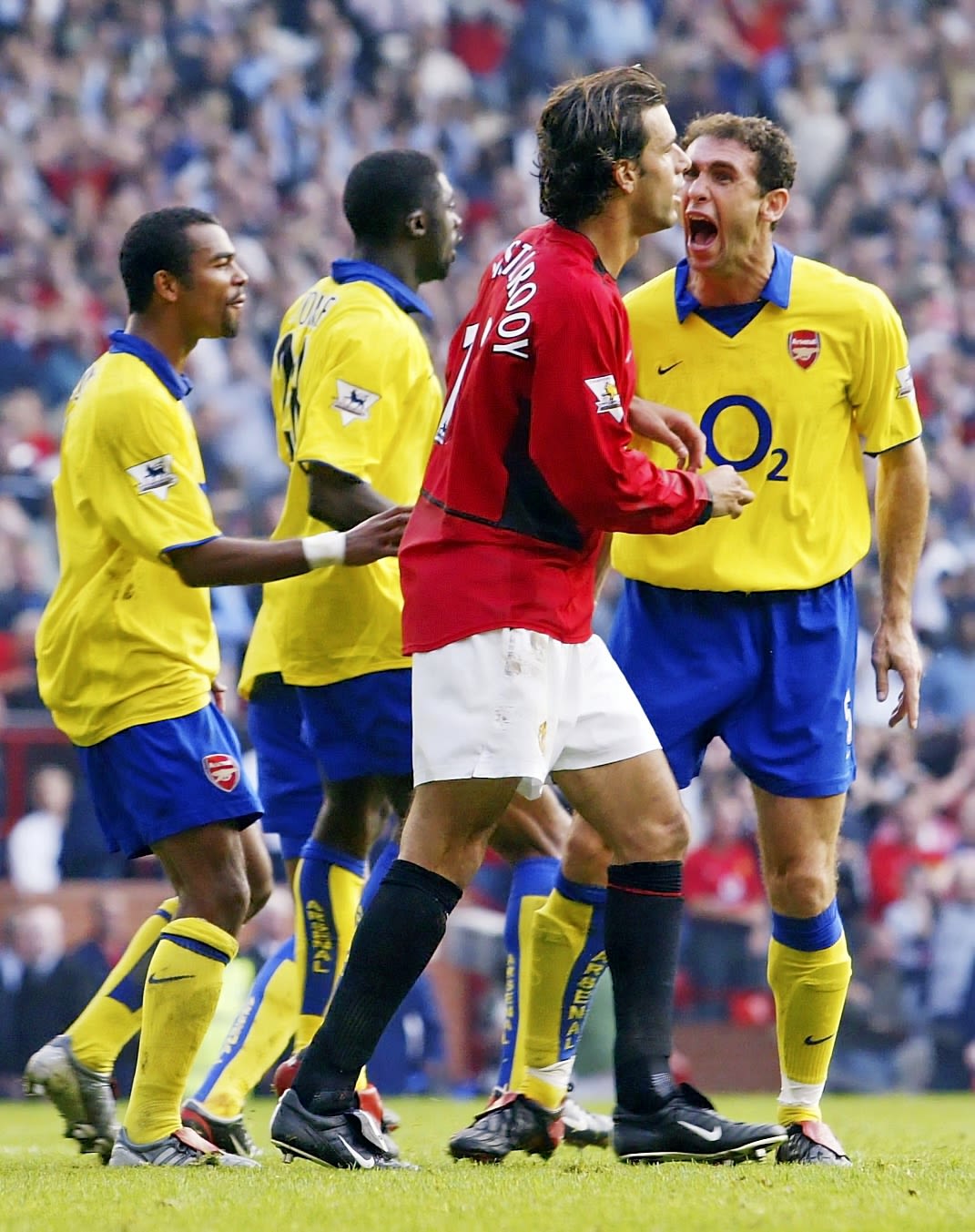
“what I liked in that reaction that day, was the solidarity of the team. You could really feel it"
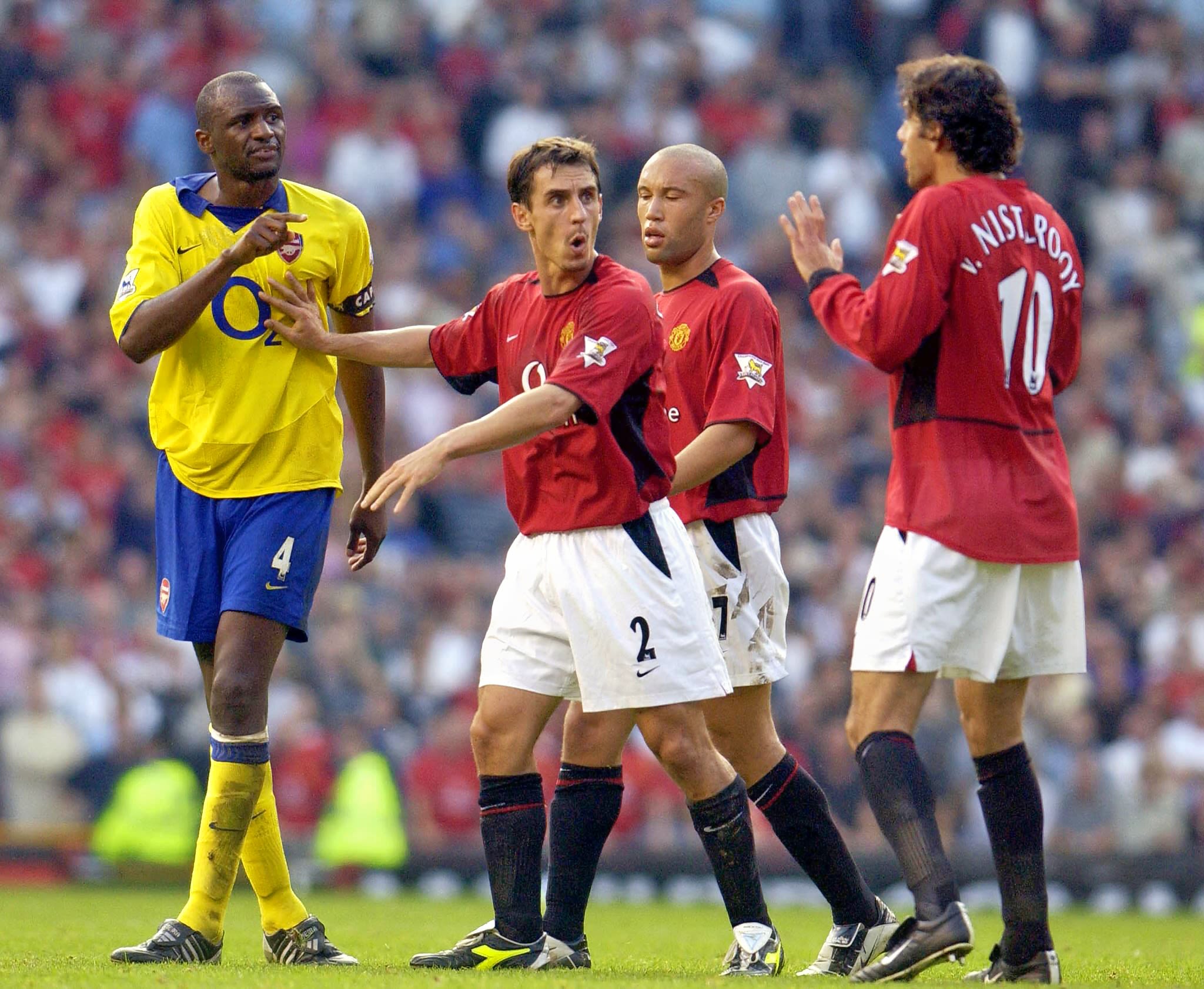
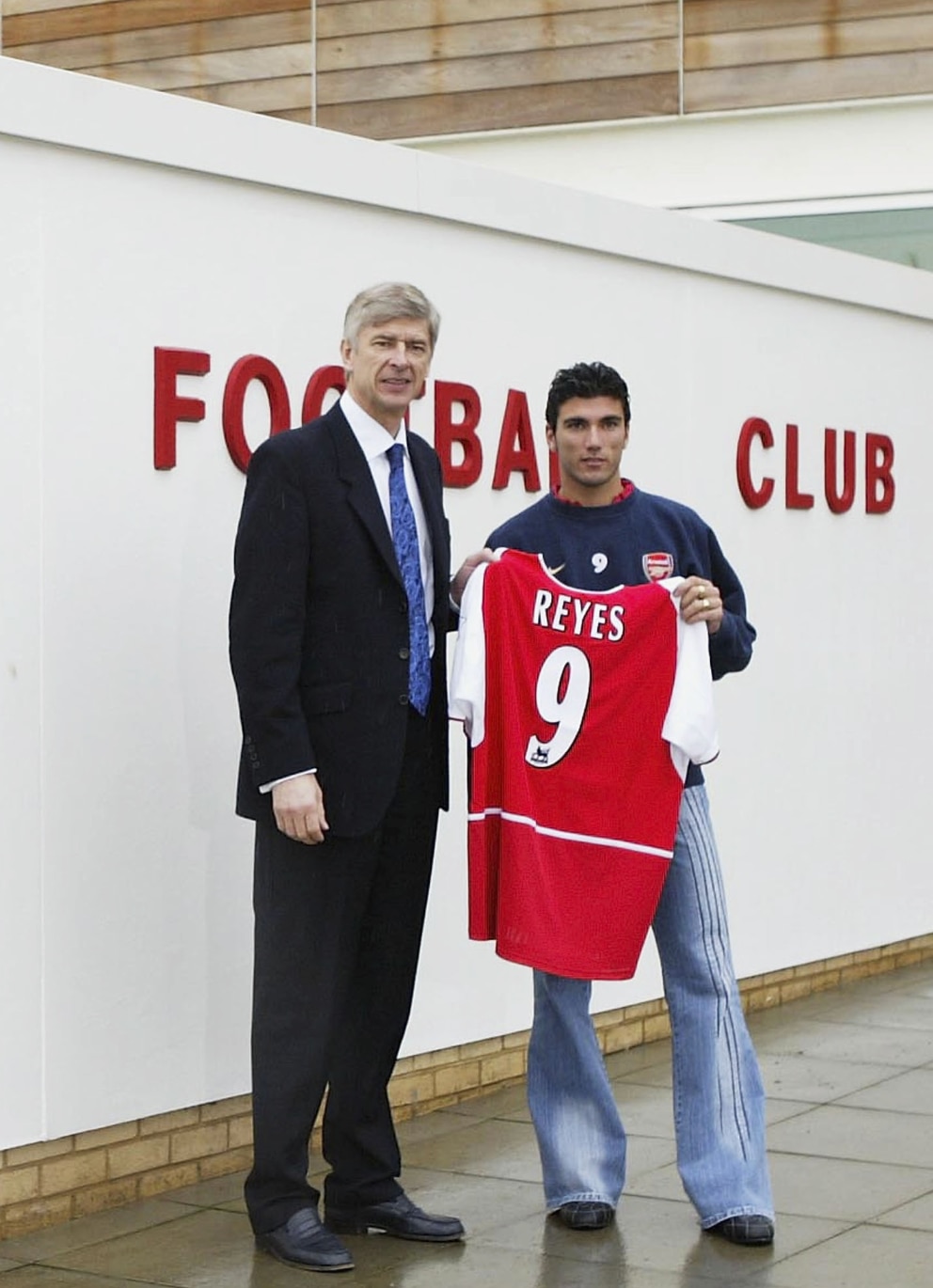
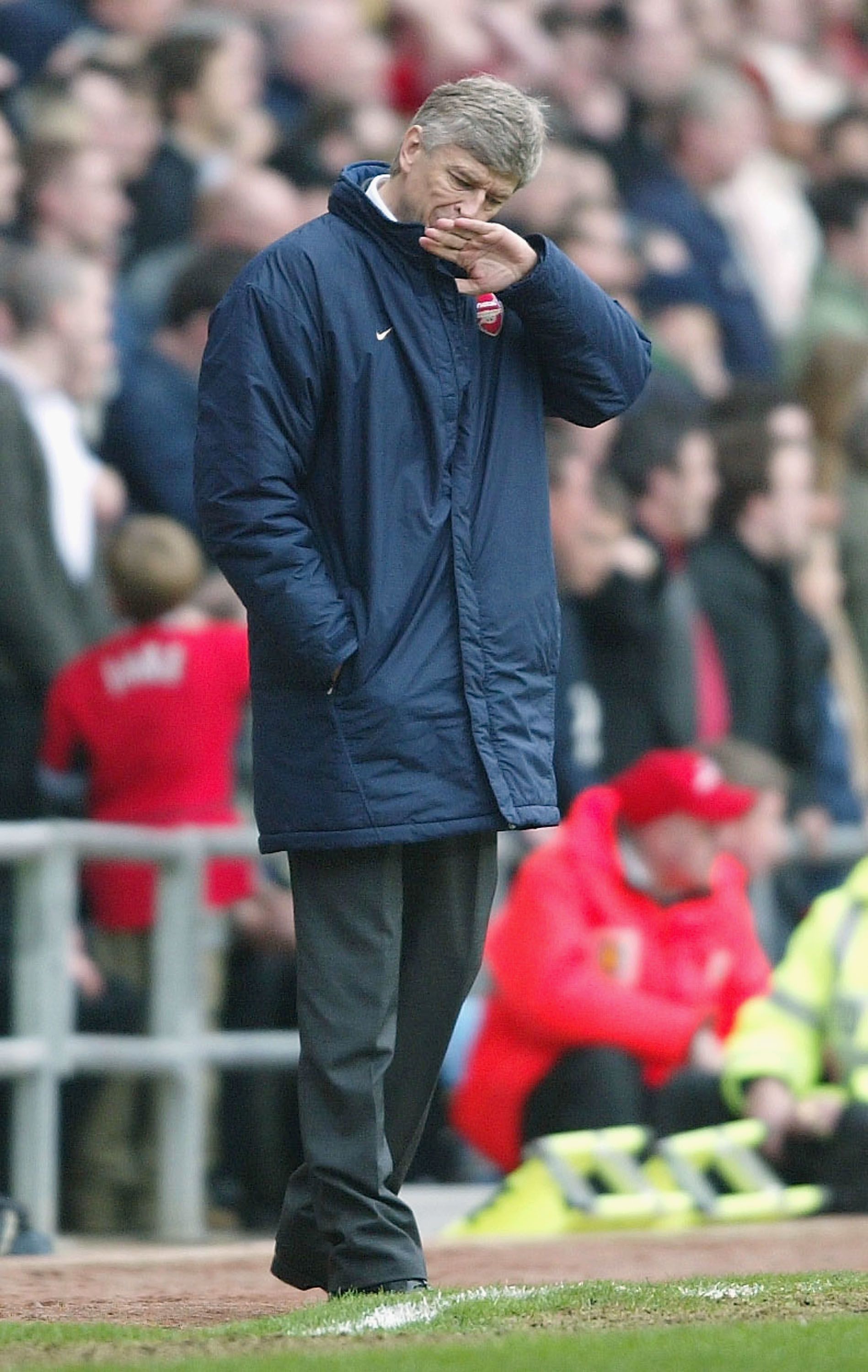
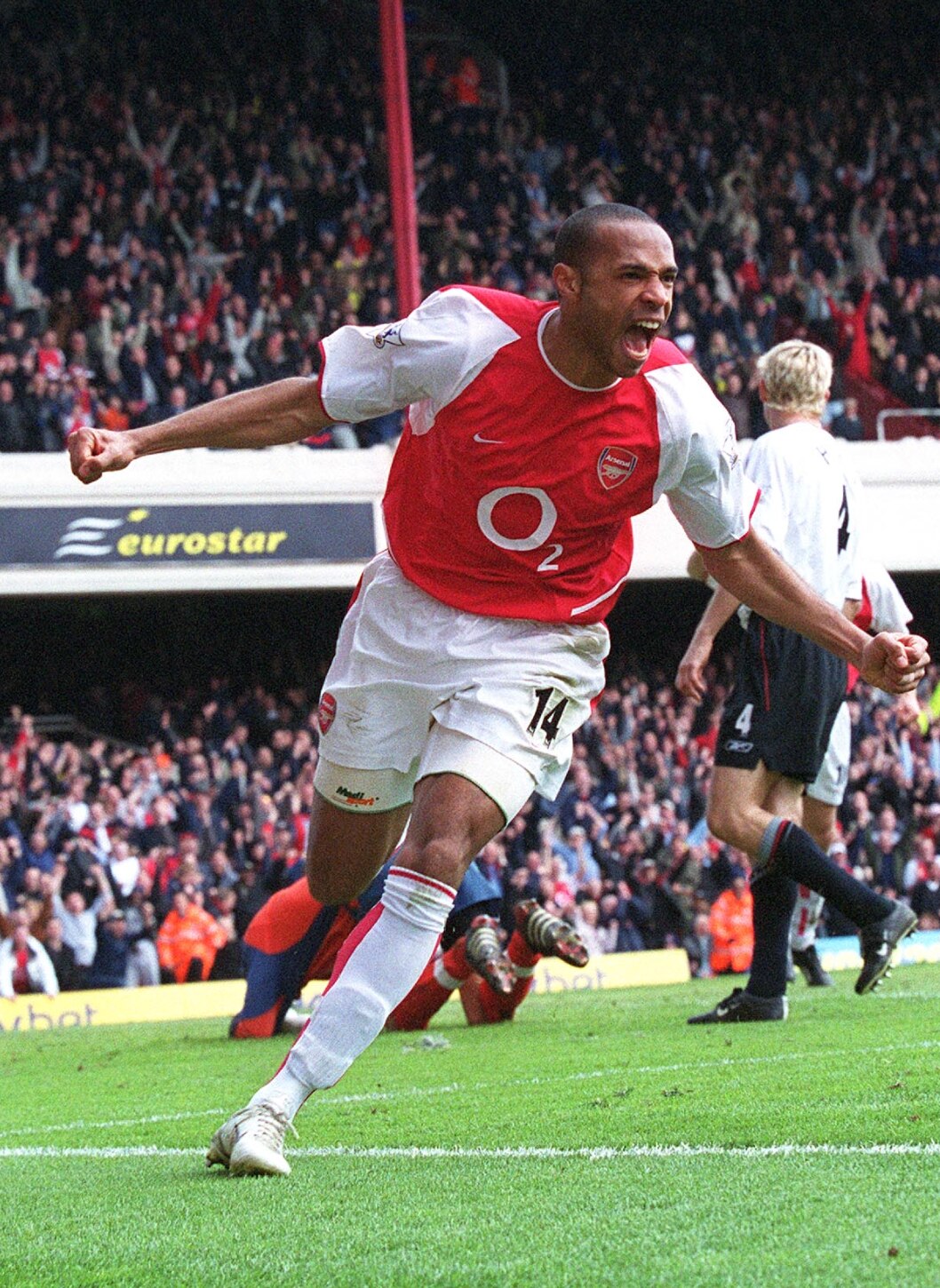
In January you signed Jose Antonio Reyes, did you see it as a risk to add somebody to the group at that stage?
In 2002 we had that ACL injury to Robert Pires, and I felt that if something happened like that again, we would need something on the left. Pires was born in 1973, so he was approaching 31 in that season, and you knew that in one or two years you would need to do something there. Dennis Bergkamp was older as well, so I was looking at the future too when I brought in Reyes.
I thought he could offer us something – either on the left and move Pires more central when Dennis wasn’t playing. Reyes could play up front too. He was branded as an exceptional talent by our scout, Francis Cagigao, who saw him play in Sevilla. I thought he could even play on the right as well, and I thought: “Yes, let’s add something more.” He was still a young boy, so it was for the future, as well as adding something that season.
In April we had a huge couple of weeks, where the fixtures piled up in different competitions. How difficult was that to deal with as the manager?
Today I’ve thought about it, and I thought many times I should have sacrificed one of the games I didn’t want. We played Chelsea in the Champions League and don’t forget they were very strong at that time. In fact they were a bigger threat in the league than Manchester United – they finished second in the table that season.
We played them in the quarter-final and drew 1-1 at Stamford Bridge, then lost 2-1 at home with the late goal, but we had left a lot of energy against Manchester United in the FA Cup semi-final at Villa Park on the Saturday afternoon, then we had to play the Champions League on the Tuesday. Then we played against Liverpool, and you are thinking in one week, we could lose everything. That tells you it was quite close. Overall it was a mental test for us.
Thierry Henry told us he was carrying a hamstring injury for that Liverpool game, but did the circumstances mean you just had to risk him?
Yes, of course. We had to win this game and we suffered when Thierry wasn’t there. We saw that in the semi-final against Manchester United. He had that impact that top-level players had. That means he boosted the potential of the team, but as well he boosted the confidence of his partners, just by being on the pitch.
For us that was absolutely a major game, and we were behind at half time. The team was driving like a Rolls- Royce, cruising along the motorway, then all of a sudden we hit two trees and we don’t know where they came from. At that moment, you don’t know where to go from there.
At half time, I admit I was a bit angry, maybe the most angry I had been, because I was not often angry with the players at half time. When I was, it had an impact, because it’s not a usual reaction from me. I tried to push them to respond because they looked dead. “Come on, what’s happening?” I said. “We have to respond here.” Some players as well contributed to what was said at half-time, and then after that Thierry produced his show in the second half.
In 2002 you had won the league at Old Trafford, you had heard all about the Arsenal side that won the league at White Hart Lane in 1971, so how special was it for you to emulate that feat?
For me it was special. We knew the situation before kick-off because Chelsea lost at Newcastle before our game. So we knew we just had to not lose the game to be champions, and we had a very strong performance. Of course I knew how special it was to win it at Tottenham, for our fans there as well – it was an exceptional moment.
It was a bit spoilt by the fact that Jens gave away that late penalty that, for me, was not a penalty. When you see it today, it’s ridiculous. But Sol Campbell and Jens had an argument afterwards about it – because they are two winners. They just wanted to win the game, they didn’t even realise we had won the league at first. It’s unbelievable. But to be honest arguments like that happened often, because they were exceptional winners.
After that, we had four games to play to complete an unbeaten season. Can you remember the meeting you had with the players to tell them of the importance of those matches?
Yes I do. I told them that the most important moment now has gone, but if they wanted to become immortal they had to continue, and refuse to lose any game. I told them it would be stupid now to focus on celebrating and lose the game, when there is something exceptional that they could achieve.
It was not easy to convince them of that, because it’s natural to switch off once you become champions. We just about glided through those last four games, without having the response I expected. But also I think on some subconscious level, the players refused to lose the games.
We were under threat at some points – especially away to Portsmouth, and we were down to Leicester at half-time too. We had a goalless draw with Birmingham. Imagine it – we were one goal away from losing it.
would you have sacrificed those league games by resting players in order to prioritise the chance of winning the Champions League?
No, because it was always my dream to be champions without losing a game. My regret is that we went out against Chelsea in the quarter-final, because then it would have been Monaco who did not have a great team, and then Porto in the final. I think it was really there for the taking – that’s my big regret.
But I would not have sacrificed the unbeaten record by resting players, but maybe the players would have mentally not been 100 per cent on the league. I would have picked my strongest team for the league games because of how much it meant to go unbeaten.
Anyway, nobody has ever proven that resting players in that scenario is a good thing. You have to weigh up the physical benefit against the mental concentration or drop of confidence when you don’t play, it’s not certain that the balance is always in favour of the rest. If they are playing four or five extra games, then yes you have to rest them, but if it is a normal schedule, I don’t think so.
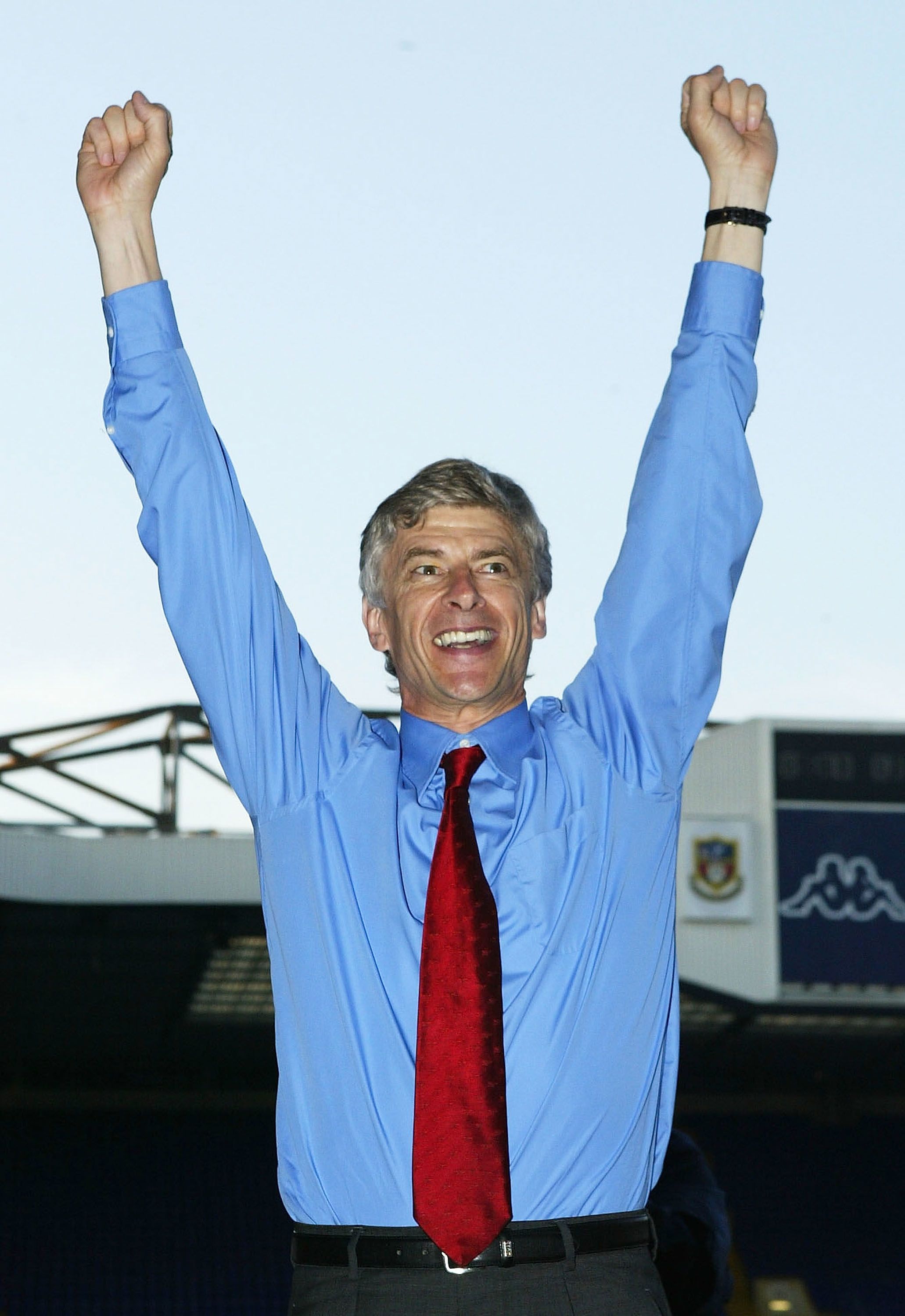
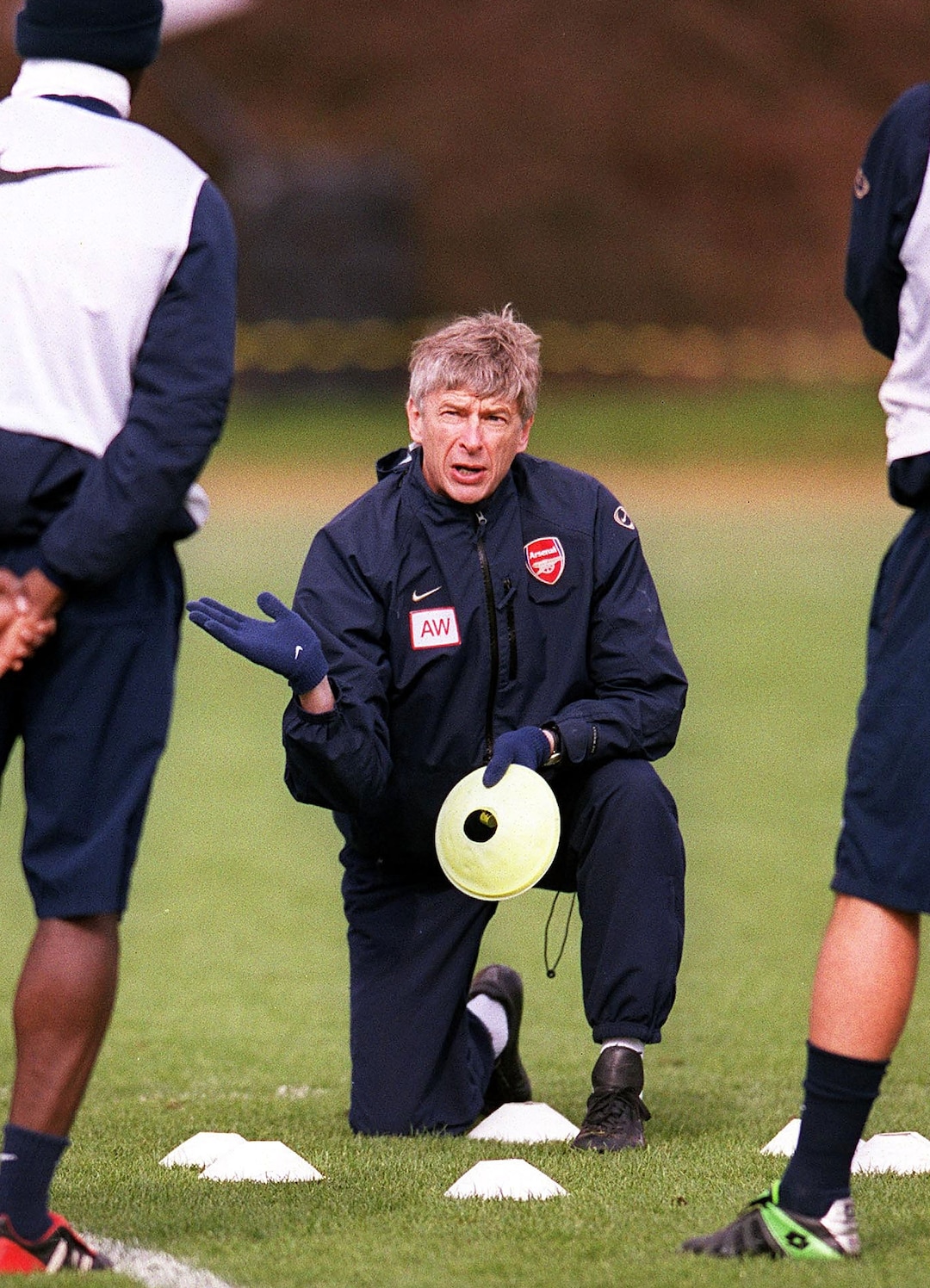
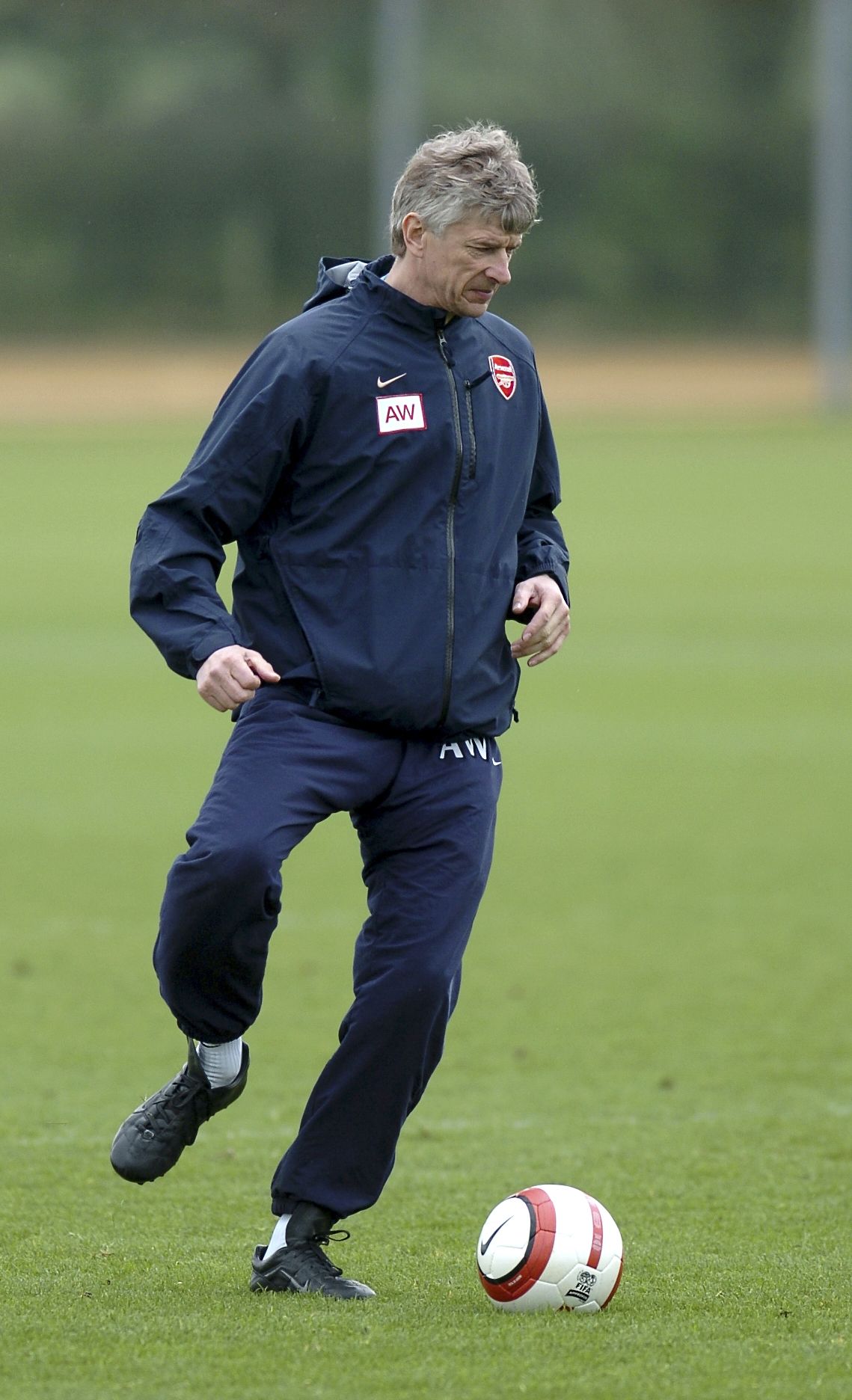
“I knew how special it was to win it at Tottenham, for our fans there as well – it was an exceptional moment"
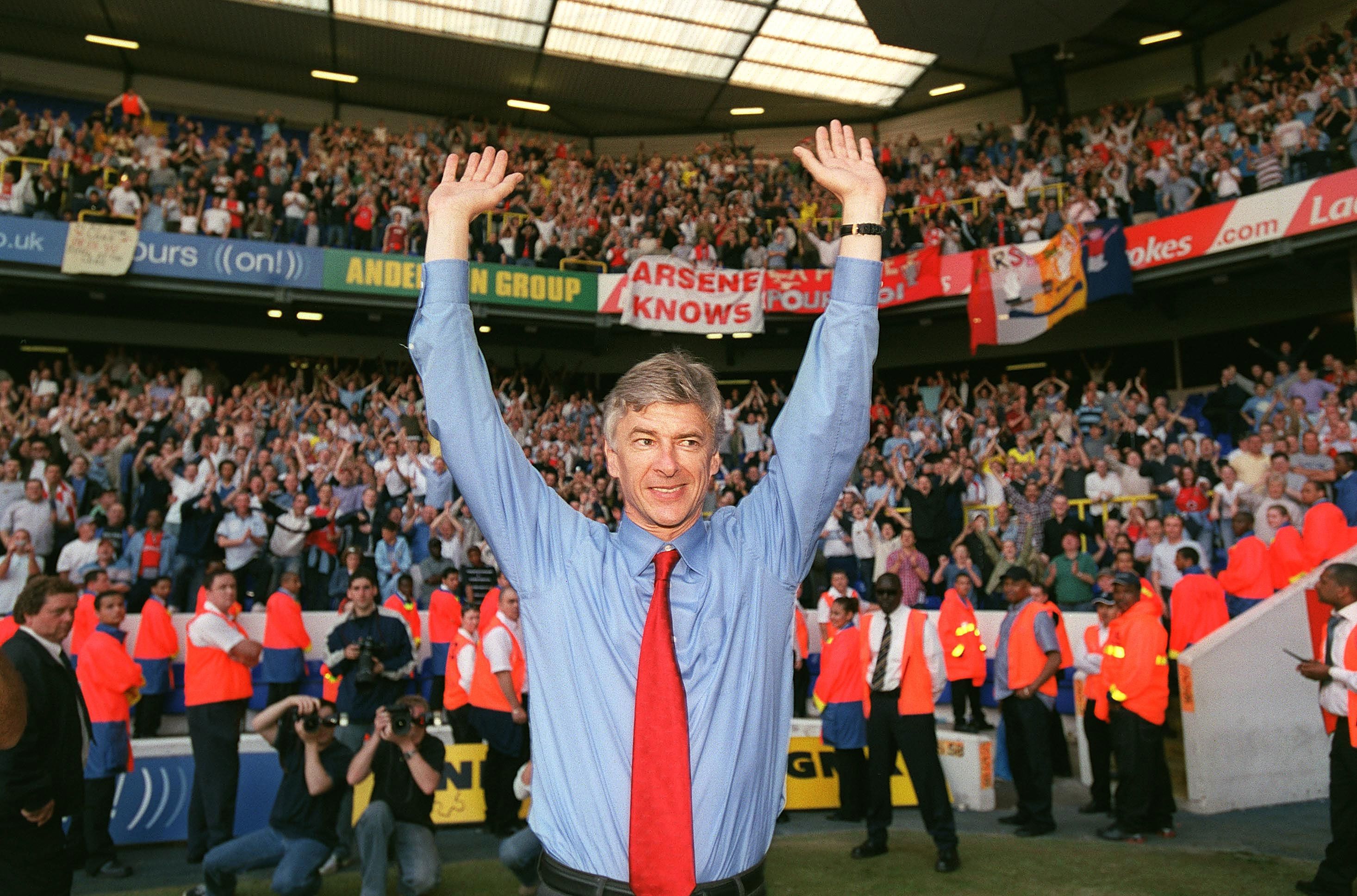
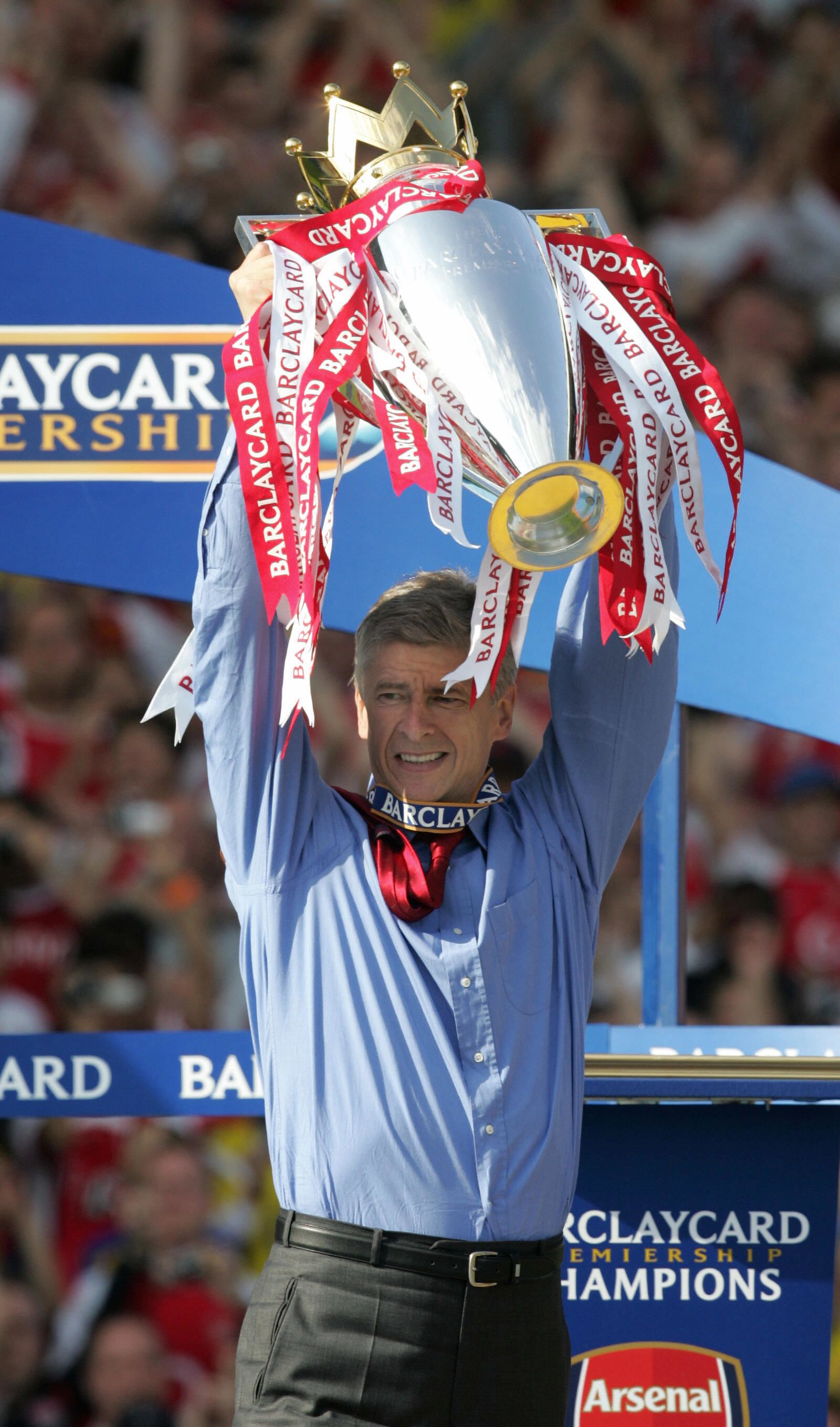
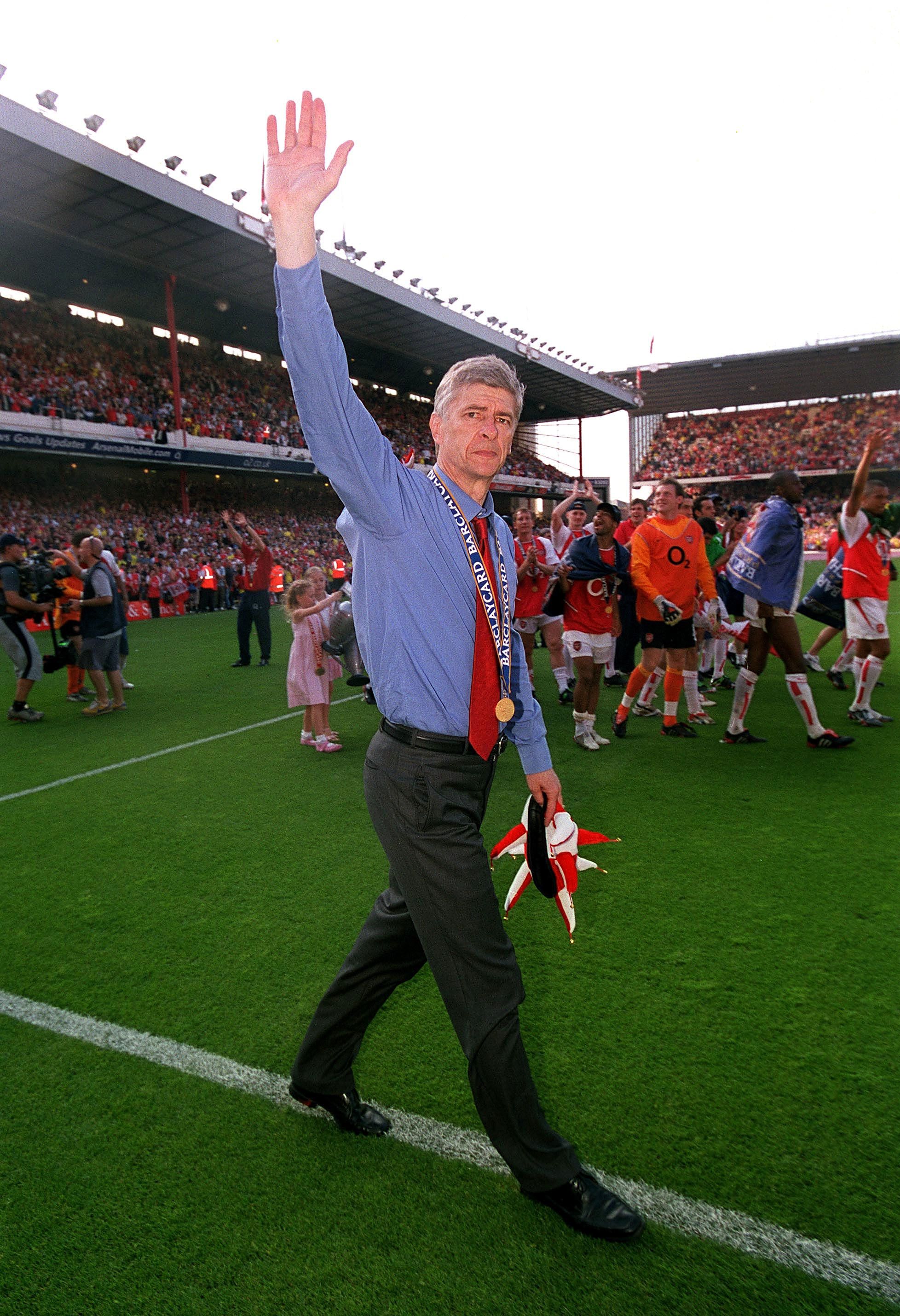
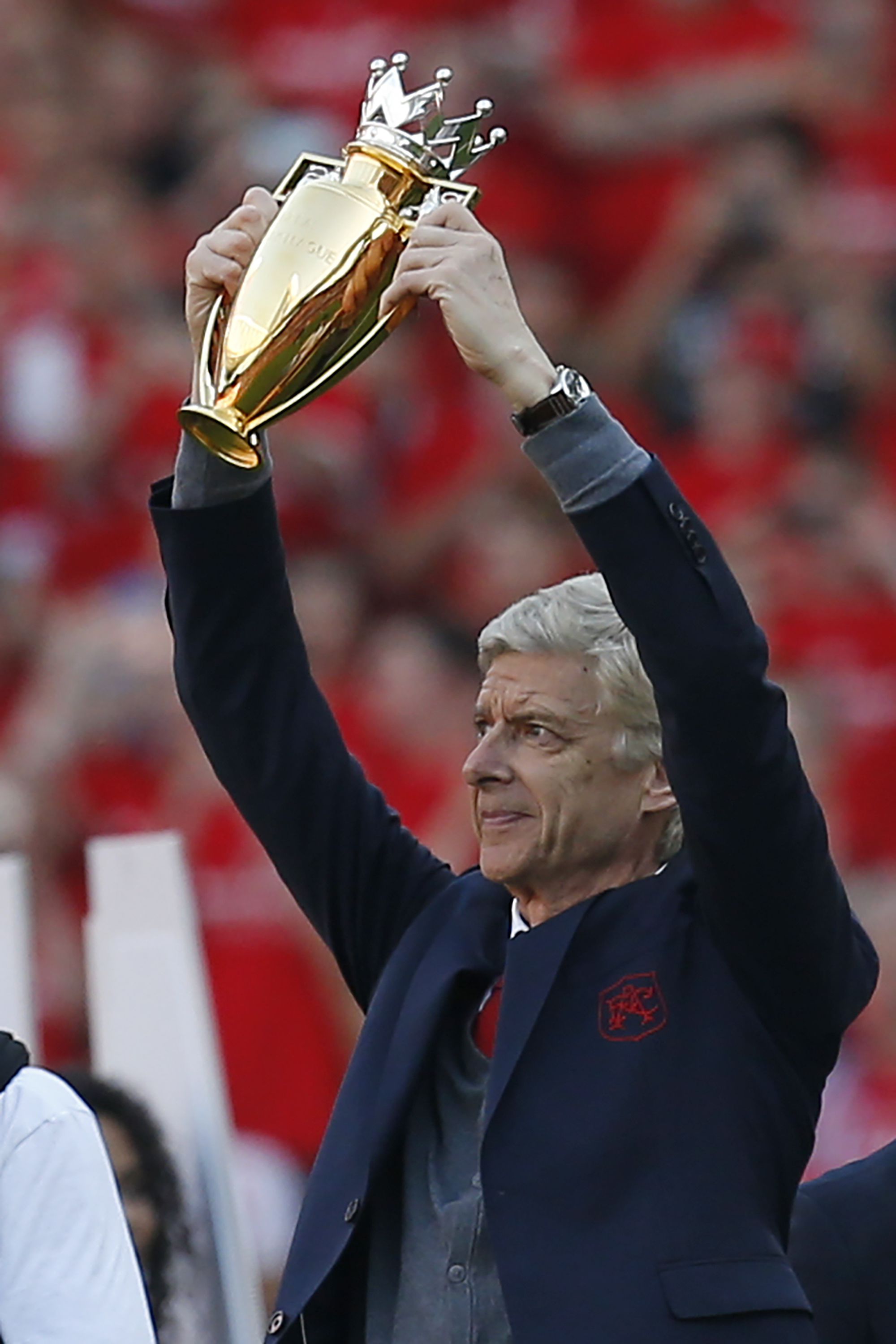
When you look back at the many turning points and circumstances that came together that season, do you think conditions had to be virtually perfect to go through It unbeaten?
Your attitude has to always be perfect, but you know how it is in football – you don’t know how strong your opponents will be on the day. How will the referee’s decisions go? Yes, it all needs to be perfect, but also to achieve it, you need player who are very strong mentally, ready, capable to fight for each other.
Today when I look back on it, I realise I was surrounded by exceptional people, in my staff, and inside the team with the players. You realise that whenever you do something exceptional in your life, you had exceptional people around you.
I would like to thank them all today, and tell them how grateful I am to have been able to draw on these qualities. I hope they don’t regret burning that extra energy at the end of the season to achieve it! We have had great teams in England since then – super great teams. But it shows it’s something special to achieve, because nobody has done it since.
How relieved are you each season when the last unbeaten record falls?
I get lots of messages every time it happens! The next team to do it has to be Arsenal, nobody else.
When you speak to the players now, do they realise the magnitude of the achievement more than they did at the time?
Yes. The players were not conscious of what we’d done. I was, because I knew as the coach that to do my job well means to win the league without losing a game. It was my dream. The players helped me to achieve my dream, and today they realise they did something special, but I agree that at the time they didn’t realise.
I have my gold trophy now and that reminds me of a special moment in my life. Moments of that calibre don’t come along often.
Was it difficult to motivate the players again after that season, knowing an achievement like that cannot be bettered?
Maybe that is true, but in 2005 we won the FA Cup and in 2006 we played the Champions League final. I think the bigger factor was moving to the Emirates [in 2006]. That was the rupture, with our financial potential.
Today when I look back at it, I think it was really unfair to be handicapped and to sell our best players to our opponents in England, because there was no financial fair play situation. But we were consistent at the top after that, and twice came close to winning the championship again.
I always accepted to suffer in that period though, because after the Emirates was paid Arsenal would come back to compete with everybody at the same level. I always fought for financial fair play and today we are back to compete with everybody else at the same level, and you can see that in the league table.
Are you proud that the Invincibles team continues to inspire the players of this generation?
Yes, I really like the players and the team spirit that we have now, and I see similarities in the way they behave and the way they play. Overall it’s very good to see those similar signs in the team again now, especially with the solidarity.
I don’t speak to Mikel a lot because when you are the manager you are always so focussed on the next game and working with your staff, but of course I follow all the results and support the team. I look forward to seeing what we can do in future.
